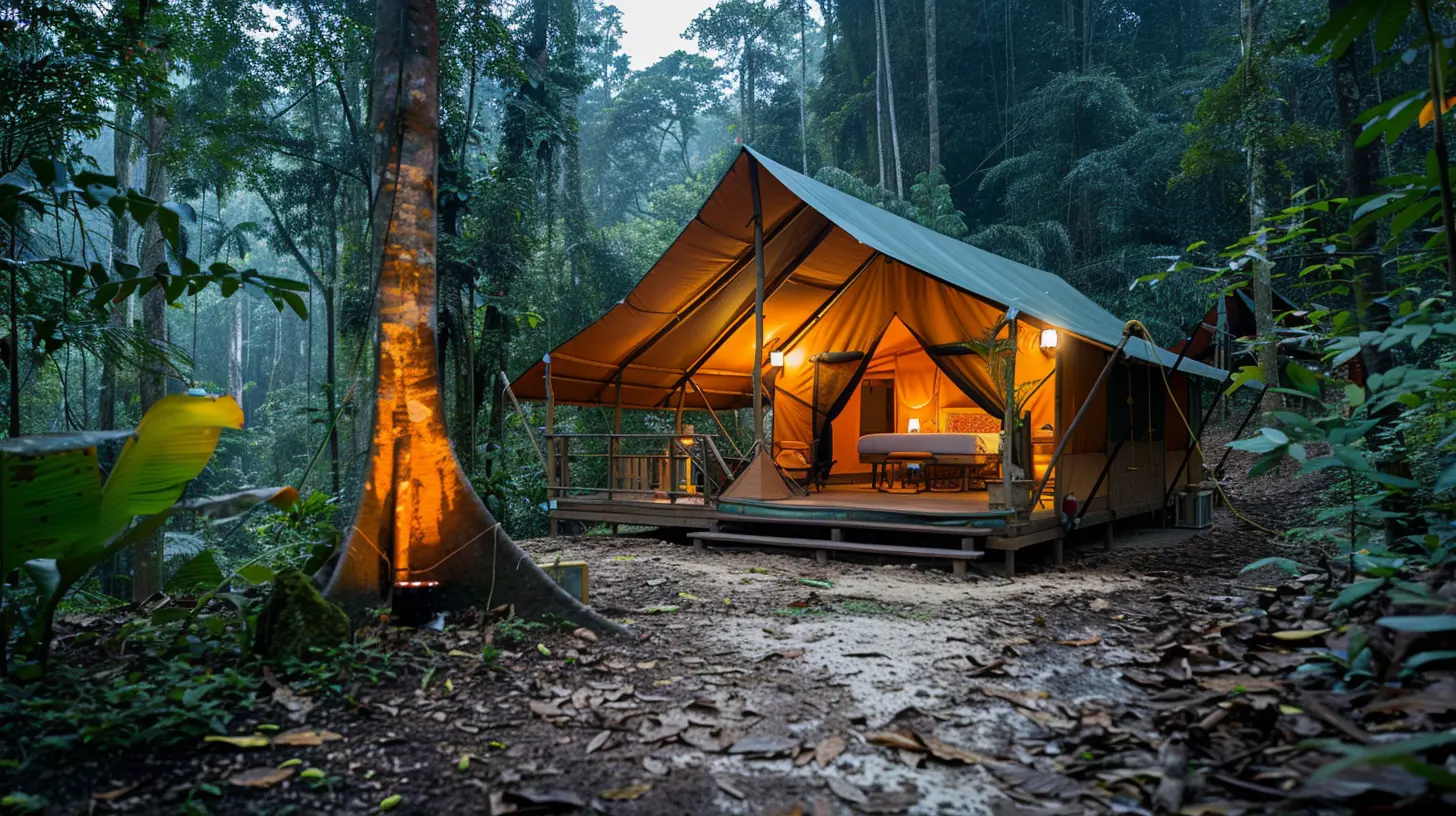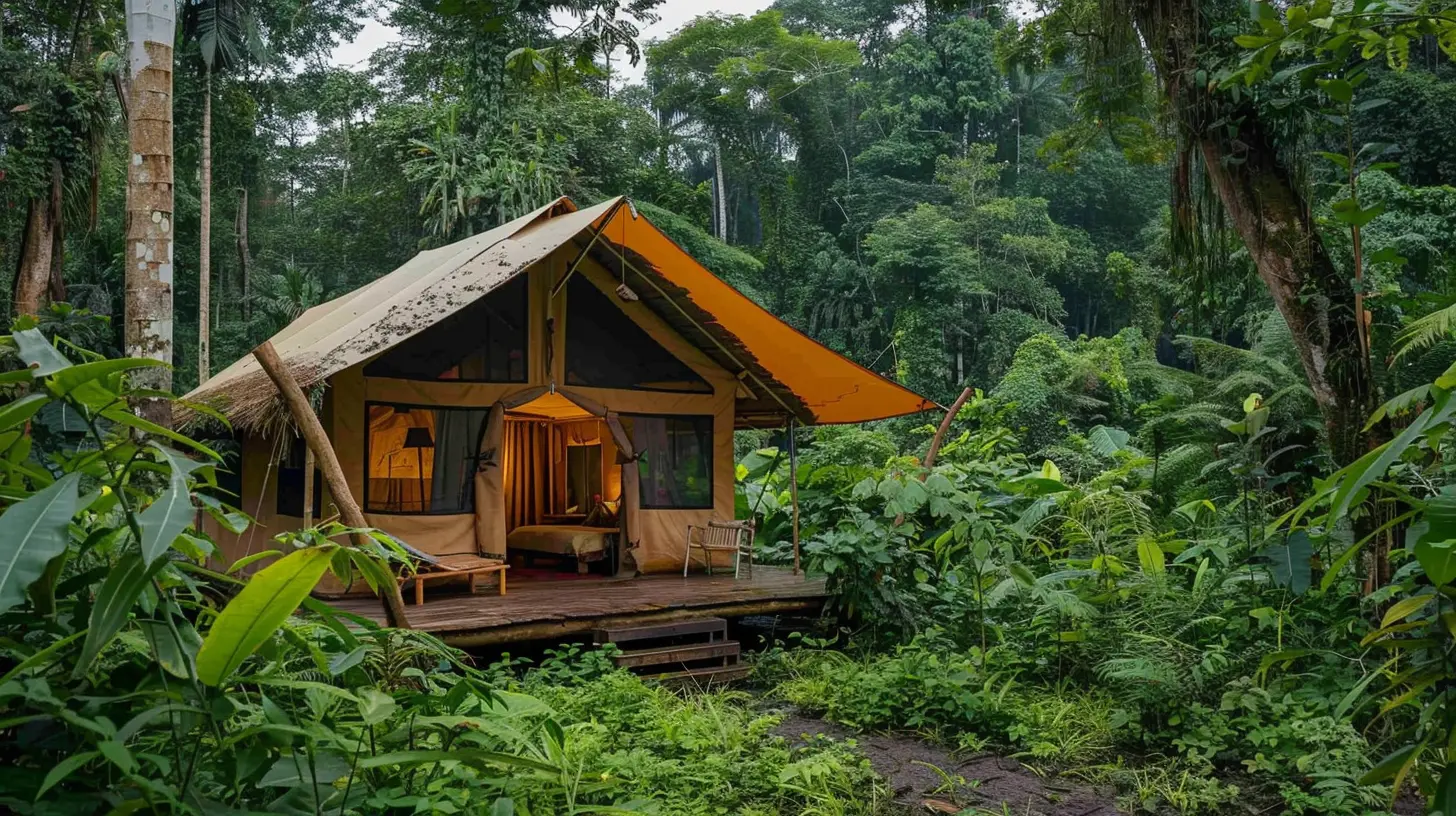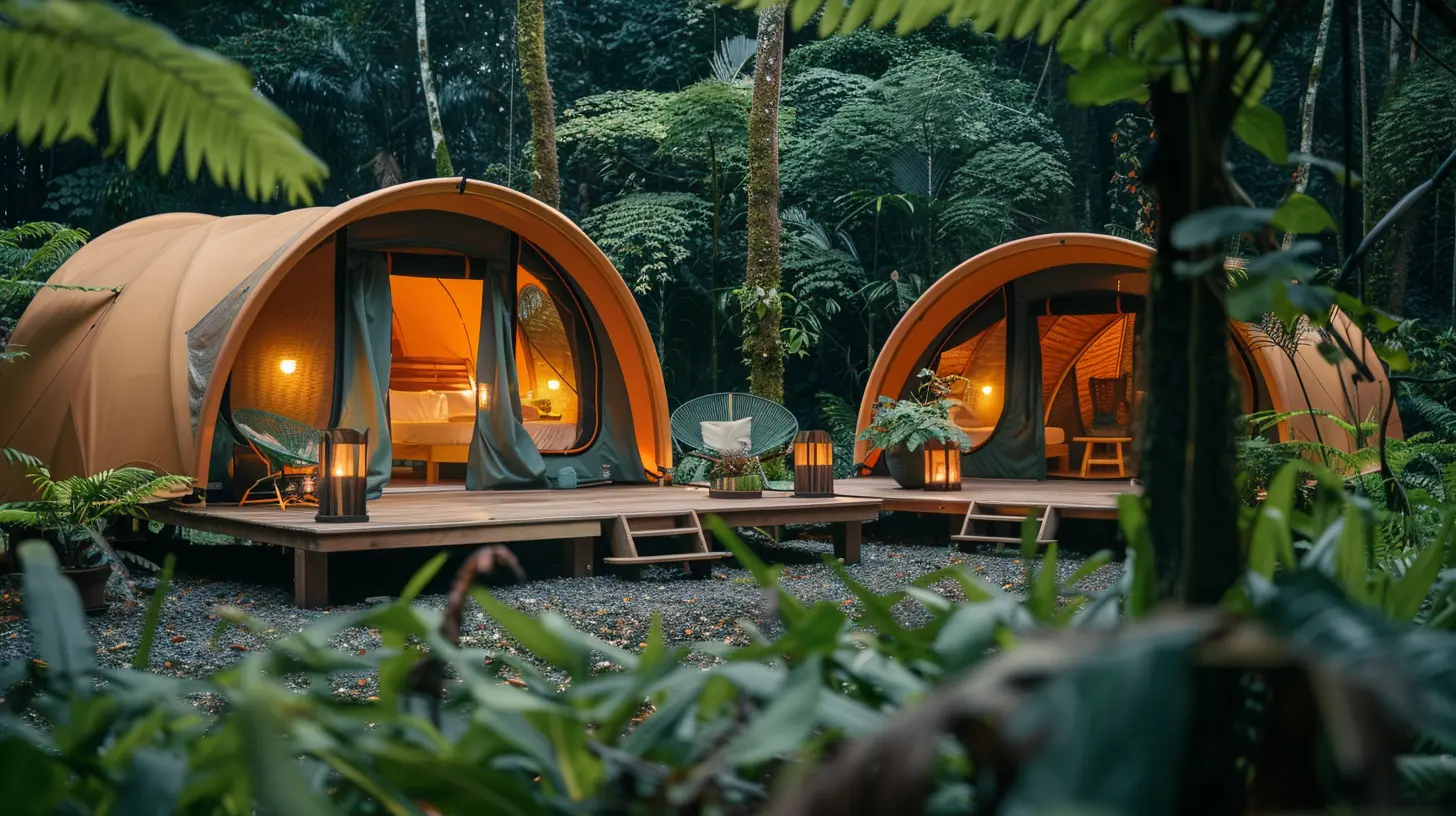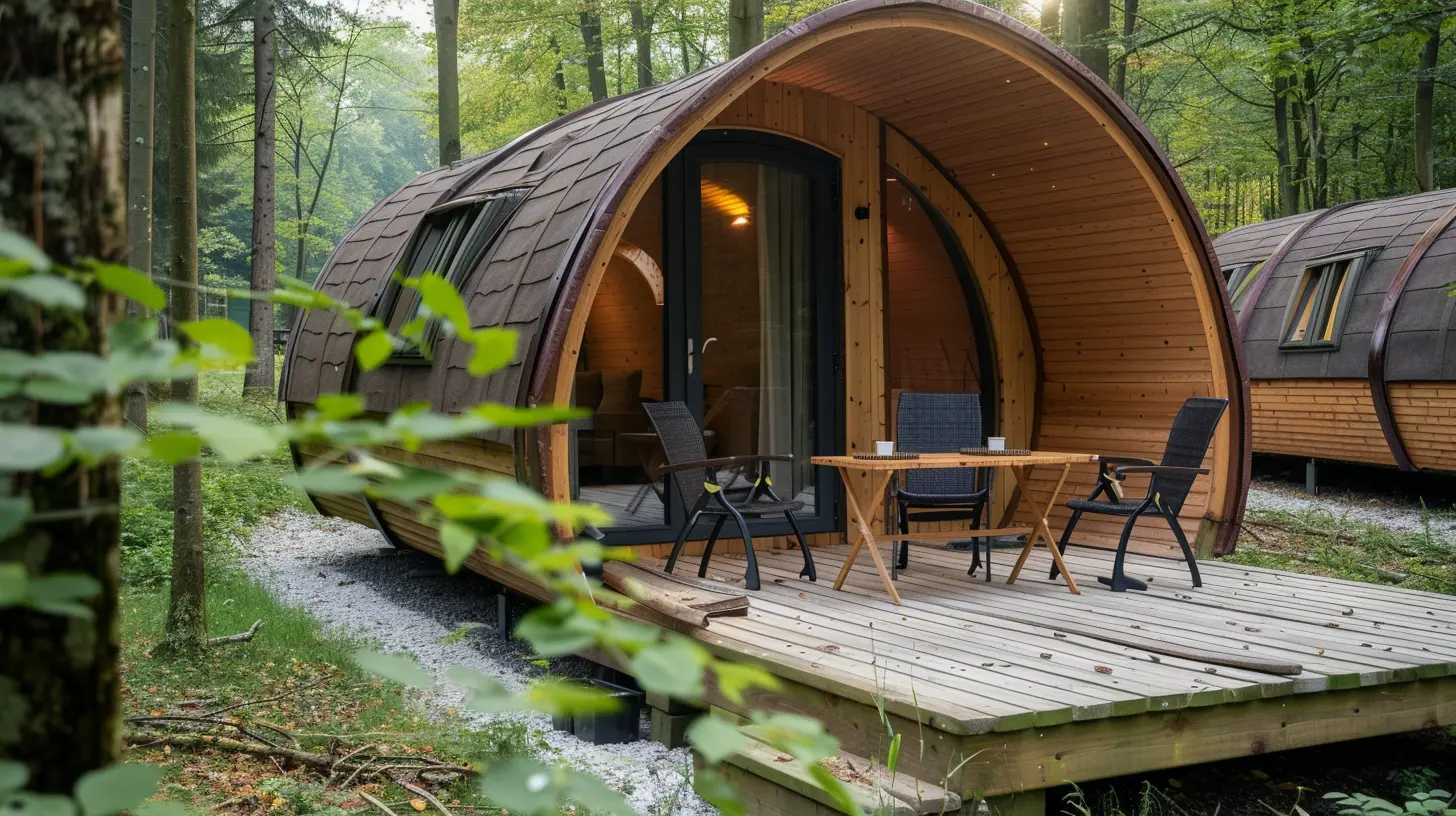Eco-Friendly Camping: Tips for Sustainable Outdoor Adventures
23 May 2025
Camping is all about immersing ourselves in nature—breathing in the fresh air, gazing at starry skies, and embracing the peacefulness of the wilderness. But what if our love for the outdoors is actually harming the environment?
From plastic waste to campfires that damage ecosystems, traditional camping practices can leave a negative impact on nature. The good news? It's entirely possible to camp responsibly while still enjoying every moment. In this guide, we’ll cover the best eco-friendly camping tips so you can tread lightly and keep the great outdoors spectacular for generations to come. 
Why Eco-Friendly Camping Matters
The great outdoors isn't just our playground—it’s home to countless wildlife species, delicate ecosystems, and breathtaking landscapes. When we camp irresponsibly, we contribute to pollution, destroy habitats, and even disrupt the natural balance.Eco-friendly camping is all about minimizing our footprint while maximizing our enjoyment of nature. By adopting sustainable habits, we help preserve the beauty of our favorite camping spots while respecting the planet.
So, how can we camp in a way that leaves no trace? Let’s dive into some practical and easy-to-follow tips! 
1. Choose an Eco-Friendly Campsite
Not all campsites are created equal. Some are well-maintained with sustainability in mind, while others suffer from overcrowding and neglect. To lower your impact:- Pick designated campsites – Many national and state parks have areas specifically prepared to handle campers without harming the land.
- Follow the "Leave No Trace" rule – Avoid setting up camp in fragile environments like wetlands or wildflower meadows.
- Look for eco-certified sites – Some campgrounds are recognized for their commitment to sustainable practices, offering composting toilets, recycling stations, and solar-powered amenities. 
2. Pack Reusable and Sustainable Gear
The gear you bring can make a huge difference in waste production. Instead of single-use or disposable supplies, opt for durable, eco-friendly alternatives:- Reusable water bottles & filters – Say no to plastic! A stainless steel or BPA-free reusable bottle paired with a water filter keeps you hydrated without the waste.
- Biodegradable soap & toiletries – Many commercial soaps contain harmful chemicals. Use natural, eco-friendly options that won’t pollute rivers and lakes.
- Sustainable camping cookware – Invest in stainless steel or bamboo utensils instead of plastic. Bring a reusable coffee filter instead of disposable pods.
- Solar-powered gadgets – Flashlights, lanterns, and chargers powered by the sun reduce battery waste and keep you off the grid longer. 
3. Reduce Waste and Pack Out Everything
"Leave No Trace" isn’t just a catchy slogan—it’s the golden rule of eco-friendly camping. Everything you bring in should come back out with you, including trash and food scraps.- Bring reusable containers – Store food in silicone bags or stainless steel containers rather than plastic bags and foil.
- Avoid packaged foods – Snack on homemade trail mix or dried fruit instead of individually wrapped snacks. Less packaging means less trash!
- Pack out all waste – Even biodegradable materials like fruit peels and eggshells can disrupt ecosystems, so take them with you.
4. Respect Wildlife and Natural Habitats
Camping gives us front-row seats to some of nature’s most incredible sights, from majestic deer to chirping birds. But remember—you’re in their home.- Never feed wildlife – It may seem harmless, but feeding animals makes them reliant on humans and can lead to dangerous encounters.
- Observe from a distance – Keep a respectful space between you and any animals you encounter. No selfies with bears, please!
- Stick to designated trails – Wandering off paths can damage fragile vegetation and disturb nesting sites.
5. Use Eco-Friendly Campfire Practices
What’s camping without a campfire? While cozy and comforting, fires can be destructive when not managed properly.- Use a camping stove – Instead of fires, consider a portable stove for cooking. They’re safer, more efficient, and don’t leave a burn scar.
- Follow fire regulations – Some areas have seasonal fire bans due to dry conditions. Always check the rules before lighting up.
- Use local firewood – Bringing wood from another area may introduce invasive pests that threaten forests. Stick to wood from the campsite area.
- Burn only what you need – Don’t create massive bonfires. Keep it small, controlled, and always fully extinguish it before leaving.
6. Choose Green Transportation
Getting to the campsite is part of the adventure, but how you travel impacts the environment too. Reduce your carbon footprint with these tips:- Carpool with friends – Fewer vehicles mean fewer emissions. Plus, road-tripping together makes the journey more fun!
- Consider public transport – Some campsites are accessible by train or bus, cutting down on fuel consumption.
- Bike or hike in – If possible, choose a campsite within walking or biking distance for a true eco-friendly adventure.
7. Use Eco-Friendly Hygiene Practices
Staying clean outdoors doesn’t have to mean harming the environment. Keep it green with these hygiene hacks:- Use biodegradable wipes – Traditional wet wipes contain plastic and don’t break down easily. Opt for biodegradable versions.
- Go natural with sunscreen & bug spray – Chemical-heavy lotions can harm aquatic life and pollute water. Choose reef-safe sunscreen and natural bug repellents.
- Practice responsible bathroom habits – If nature calls, use a designated restroom when available. Otherwise, dig a small hole at least 200 feet from water sources and bury human waste properly.
8. Support Eco-Conscious Brands
If you’re shopping for new camping gear, support brands that prioritize sustainability. Look for companies that use recycled materials, minimize plastic packaging, and donate to environmental causes. A few eco-friendly outdoor brands worth checking out include:- Patagonia
- tentree
- BioLite
- United By Blue
9. Leave the Campsite Better Than You Found It
One of the best habits of an eco-friendly camper? Cleaning up—even if the mess isn’t yours!- Pick up trash – If you see litter, take a moment to collect it. Small actions add up!
- Don’t take souvenirs – That pretty rock or wildflower belongs in nature, not in your pocket.
- Spread the word – Encourage friends and family to adopt sustainable camping habits too. The more people who care, the bigger the impact!
Final Thoughts
Camping and sustainability go hand in hand when done right. By making mindful choices, we can continue to enjoy the outdoors without leaving a negative footprint. Whether you're a casual camper or a wilderness pro, these eco-friendly camping tips will help you cherish nature while preserving its beauty for future generations.So, next time you head out into the wild, ask yourself—am I leaving this place better than I found it? If the answer is yes, you’re doing camping right!
all images in this post were generated using AI tools
Category:
Eco TravelAuthor:

Claire Franklin
Discussion
rate this article
3 comments
Kenzie Walker
This article provides invaluable insights into eco-friendly camping practices. Emphasizing sustainability while enjoying the great outdoors is essential for preserving our natural spaces. Thank you for sharing these practical tips that inspire responsible outdoor adventures and encourage a deeper connection with nature. Great read!
May 25, 2025 at 2:45 PM

Claire Franklin
Thank you for your thoughtful feedback! I’m glad you found the tips helpful for promoting sustainable outdoor adventures. Happy camping!
Fenn McLoughlin
Nature's beauty, keep it!
May 25, 2025 at 2:46 AM

Claire Franklin
Absolutely! Embracing eco-friendly practices helps preserve nature's beauty for future generations. Thank you for your support!
Ember McClellan
Embrace nature responsibly; small changes in camping can significantly impact sustainability.
May 24, 2025 at 4:44 AM

Claire Franklin
Absolutely! Every small change counts towards a more sustainable camping experience. Let's all do our part!



